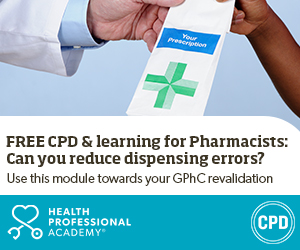The field of medical laboratory science is indispensable to modern healthcare. Medical lab scientists play a pivotal role in the diagnosis and prevention of diseases by analyzing a variety of biological specimens. Their work lays the foundation for physicians to provide accurate treatments to patients. For those eyeing a career in this vital sector, comprehending the responsibilities and steps necessary to thrive is essential. Below, you’ll find a guide encompassing the educational requirements, practical experience, and professional networking vital to becoming a successful medical lab scientist.
Educational Pathways for Aspiring Medical Lab Scientists
The journey to a career in medical laboratory science traditionally begins with a strong foundational education in the hard sciences. Most employers require at least a bachelors in medical laboratory science which provides a comprehensive learning experience. A bachelor’s degree in medical laboratory science prepares you for diverse career options within the healthcare industry. Whether working directly with patients in clinical laboratories or contributing to groundbreaking research, individuals with this degree are instrumental in providing accurate diagnoses and improving patient care.
Accredited programs ensure that students receive theoretical knowledge and practical skills. Courses often include subjects such as microbiology, hematology, and clinical chemistry, which are fundamental to this profession. The curriculum is designed to meet the rigorous standards expected in a sensitive field that impacts patient health directly. Many educational institutions stress the importance of interdisciplinary learning. As such, students are encouraged to engage in courses that foster a broader comprehension of healthcare, including ethics, patient relations, and healthcare management.
Joining honor societies, like this national honor scholarship society, can contribute to one’s development when in high school and preparing to pursue a career. Joining an honor society in high school can have a lasting impact on your future career by providing you with networking opportunities, enhancing your resume, and offering valuable resources for professional development. It is a chance to surround yourself with motivated individuals who share your drive for success and can help guide you toward achieving your personal and professional goals.
Understanding the Role of a Medical Lab Scientist
An integral component of healthcare, medical lab scientists delve into a microscopic world to unlock vital health insights. Tasked with analyzing bodily fluids and tissues, they detect anomalies that may signify disease or medical conditions. By running a variety of tests, these professionals assist in forming diagnoses, thereby influencing patient care strategies. The accuracy and reliability of their work cannot be understated as many medical decisions hinge on their findings.
Under the supervision of pathologists, medical lab scientists also engage in complex research. This requires keen attention to detail and strict adherence to laboratory protocols to ensure consistency and legality of each process. As technology advances, these scientists are often at the forefront, learning and adapting to new methodologies that can improve outcomes and efficiency.
This pivotal role not only requires scientific expertise but also demands strong communication skills. Medical lab scientists must relate their findings to healthcare providers. Additionally, they are responsible for documenting every step of their work for transparency and future reference.
Networking and Professional Development in the Medical Lab Science Field

Networking is a potent tool for professional growth in any field, and medical laboratory science is no exception. Building relationships within the field can lead to new job opportunities, partnerships, and the exchange of valuable insights. Professional conferences and seminars are excellent venues to meet peers and learn from the experiences and knowledge of others. Mentorship is often underappreciated but can be incredibly beneficial for early career scientists. Having a seasoned professional to guide, advise, and advocate for you is a substantial asset. Mentors can offer personalized tips on navigating the workplace, help set realistic goals, and provide support through challenging situations.
Ultimately, professional development is a process of lifelong learning that complements the formal education and practical training needed in this field. By being proactive and taking ownership of their growth, medical lab scientists not only enhance their careers but also contribute to the advancements of medical laboratory science.
As you can see, embarking on a career as a medical lab scientist demands more than a passion for science; it necessitates a dedicated pursuit of educational excellence, hands-on laboratory experience, and ongoing professional development. Overall, a well-rounded approach including networking, certification, and a commitment to staying current paves the way to success in this instrumental and life-saving sector of healthcare.







